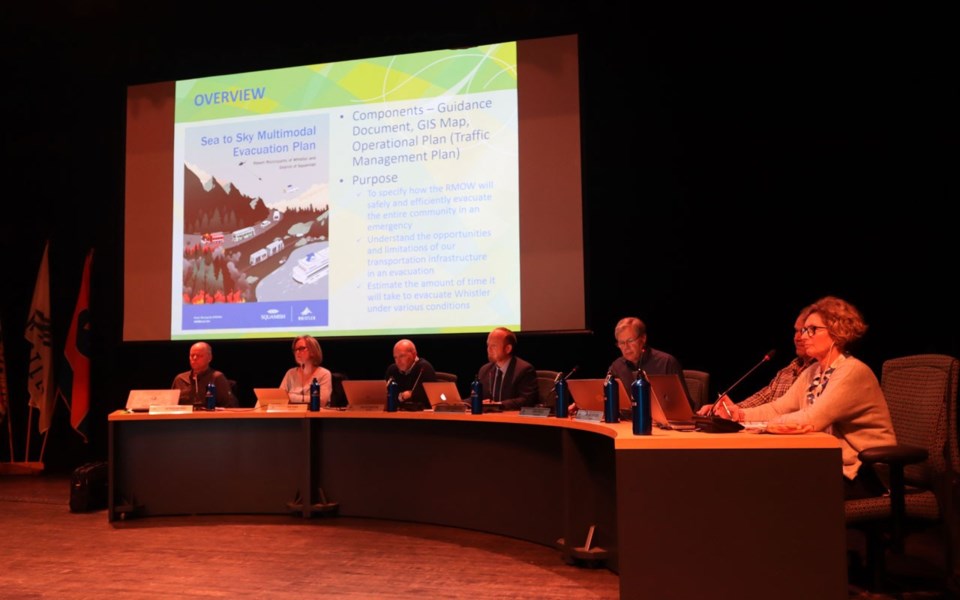While cooler temperatures and some rain over the past week brought Whistler's fire danger rating back down to "moderate," a weekend spent at "high" and "extreme"—this early in the fire season—is enough to put some on edge.
"What I was informed of at (municipal) hall was that this is the earliest that we've gone to high hazard. I think mid-May was the earlier accounting or record of that," said Councillor Arthur De Jong.
"We have been seasonally dry since January. The province is, for the most part, under lower-than-average snowpacks. Whistler, we are very average this year, but not across the province."
What does that mean for the summer ahead?
"If I had hair I'd probably lose it, on that one," De Jong said.
The municipal councillor overseeing Whistler's environment portfolio, De Jong said he studies "very carefully" the weather reports from the National Oceanic and Atmospheric Administration out of the United States, which have more intel than any other weather bureau.
"Although their charts don't show us, their charts go right into the borderline of Washington and B.C., so you can interpret that," he said.
"And they're calling for ... for May, June, July: hot and dry."
One of the most concerning factors impacting B.C.'s fire seasons, in De Jong's opinion, is the amount of pine-beetle affected forest still left to burn (the dead wood being far more prone to catching fire).
"Only a minority—about 20, 25 per cent of the affected diseased forest—has burnt so far, so there is still a very significant inventory of forest in the interior that is very prone to burn, and potentially can affect our air quality for the summer," De Jong said.
"So I just urge our residents, everyone—let's FireSmart."
The RMOW's 2019-to-2023 proposed project list includes $639,540 for wildfire protection in 2019 (plus another $591,000 from provincial grants), and $3,448,900 from 2020 to 2023.
Whistler's wildfire protection program will target three key areas in 2019: wildfire fuel reduction (on Cheakamus Lake Road, near Kadenwood, in the Rainbow interface area and around priority critical infrastructure areas), public education and support for the FireSmart program and improvements to policy and process.
FireSmart community chipper days and strata work days are also back this year, as is the adopt-a-trail campaign (which is looking for volunteer groups to help FireSmart sections of the Valley Trail).
Anyone interested in either can email FireSmart coordinator Scott Rogers at srogers@whistler.ca.
Head to www.whistler.ca/firesmart for more.
Meanwhile, the Whistler Fire Rescue Service will be training on a new Structural Protection Unit (SPU) throughout the month of May.
The SPU trailer contains pumps, water bladder and low volume sprinklers, which allow firefighters to setup a large area of light water coverage around several homes in an affected area.
"Firefighters set up sprinkler structure protection operations a day or two prior to the projected arrival of wildfire danger into the community. This accomplishes two important functions: It dampens the combustible building material and it raises the area's relative humidity thus reducing the ability of a spark or ember to ignite easily," according to an RMOW spokesperson.
"Structure fires occur primarily by flying embers that may have travelled several kilometres by dry, hot wind and land on combustible roofs and other combustible materials around homes. Lawn furniture and plastic doormats are examples of innocuous household materials that become highly flammable under wildfire conditions capable of setting houses on fire quickly.
"Under the threat of wildfire, homeowners should move all combustible materials inside a closed garage or 10 metres away from the home."
On May 14, Whistler council endorsed the Multimodal Evacuation Plan, which lays out how to evacuate the entirety of Whistler in the event of a disaster (see story on page 31).
Residents and visitors are reminded to report all fires in Whistler immediately by dialing 911.
Fires outside of Whistler should be reported to the BC Wildfire Service at 1-800-663-5555 or *5555 toll-free on most cell networks.
Find more at www.whistler.ca/fire.
Stay up to date on the wildfire situation in B.C. at www.bcwildfire.ca.




